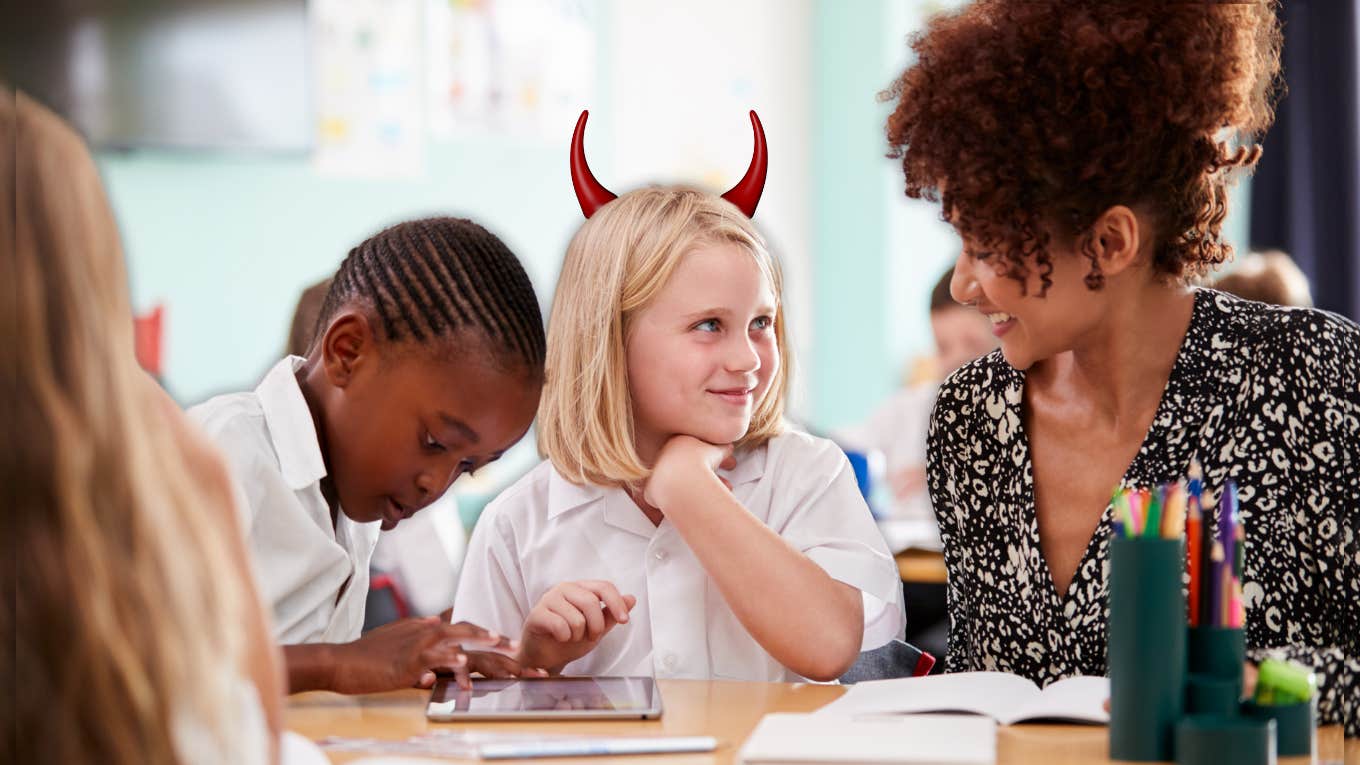Teacher Says The Most Toxic Behaviors In The Classroom Are Coming From Affluent, Privileged Kids In Two Parent Households
She challenges beliefs that low socioeconomic status, race, learning disabilities and lifestyle are to blame for behavior problems in the classroom.
 Gambar Carwana - Canva Elements/Monkey Business Images - Shutterstock
Gambar Carwana - Canva Elements/Monkey Business Images - Shutterstock If you are under the assumption that underprivileged kids or those from single-parent households are the students misbehaving at school, one teacher says that you would be dead wrong.
As a matter of fact, Theresa Kaye Newman, a teacher at her own music academy, says that the kids who are exhibiting the most toxic behaviors come from families of means where both parents are present in the home.
The teacher suggests that the most destructive classroom behavior comes from kids who have 'affluent' families.
Theresa Kaye Newman knows some people will find her assertion hard to believe, but as a seasoned teacher, speaks from experience. Ultimately, she takes issue with longstanding beliefs that low socioeconomic status, race, learning disabilities, and lifestyle are to blame for behavior problems in the classroom.
Newman further argues that this dated mindset is why some schools are beginning to look more like "penal systems" and that "the schools that are in the most need" are being stripped of vital resources like libraries.
The concerned teacher shared that many of the kids in “less than ideal” situations are the most committed to their education.
They also tend to exhibit the most caring and considerate behavior in class. Newman opined that even the "smallest amount of effort and time" can result in a child who is empathetic and kind, and some parents aren't prioritizing these lessons.
The important takeaway in Newman's observation is that a single parent working multiple jobs is just as well-equipped to teach their children good values as their wealthier counterparts, and affluence and two-parent homes are not immediate precursors to raising kind children.
Even parents who are home early every night and can indulge their kids with material luxuries will not automatically have well-behaved and well-rounded children. As Suniya Luthar, PhD explains on the American Psychological Association Podcast, "upper-middle-class white collar families need to work extra hard to make sure our children do not get swept away in this feeling of 'I must do more,' and stay grounded more in decency, kindness and true compassion, concern for humanity."
Newman adds, “I understand that we are all looking for some grand societal cause for poor student behavior and violence in the classroom that we’re seeing right now,” but the issue is much simpler. She believes that the lessons of accountability are, in her opinion, exactly what is missing right now from some affluent parent homes. and this lack of structure is the catalyst for the rise in violence in the classroom.
Students who misbehave ruin the educational experience for those who are there to learn.
One viewer chimed in to express her daughter’s frustrations with disruptive classmates. She was tired of other students creating chaos in school and making it difficult for engaged kids to learn and do well. And in order to truly solve this problem, Newman emphasizes that we need to listen to the kids who see it every day. Just like this commenter's daughter.
According to the National Center for Education Statistics, during the 2019 - 2020 school year, a whopping 77% of schools had at least one recorded crime, resulting in 1.4 million incidents. Whatever you believe the true cause to be, the rise in violence and increased behavioral issues in the classroom cannot be denied.
Perhaps the true solution is as simple as Newman and Luthar suggest — prioritize teaching kids to be kind and considerate before they get into the classroom.
NyRee Ausler is a writer from Seattle, Washington. She covers lifestyle, relationships, and human-interest stories that readers can relate to and that bring social issues to the forefront for discussion.

